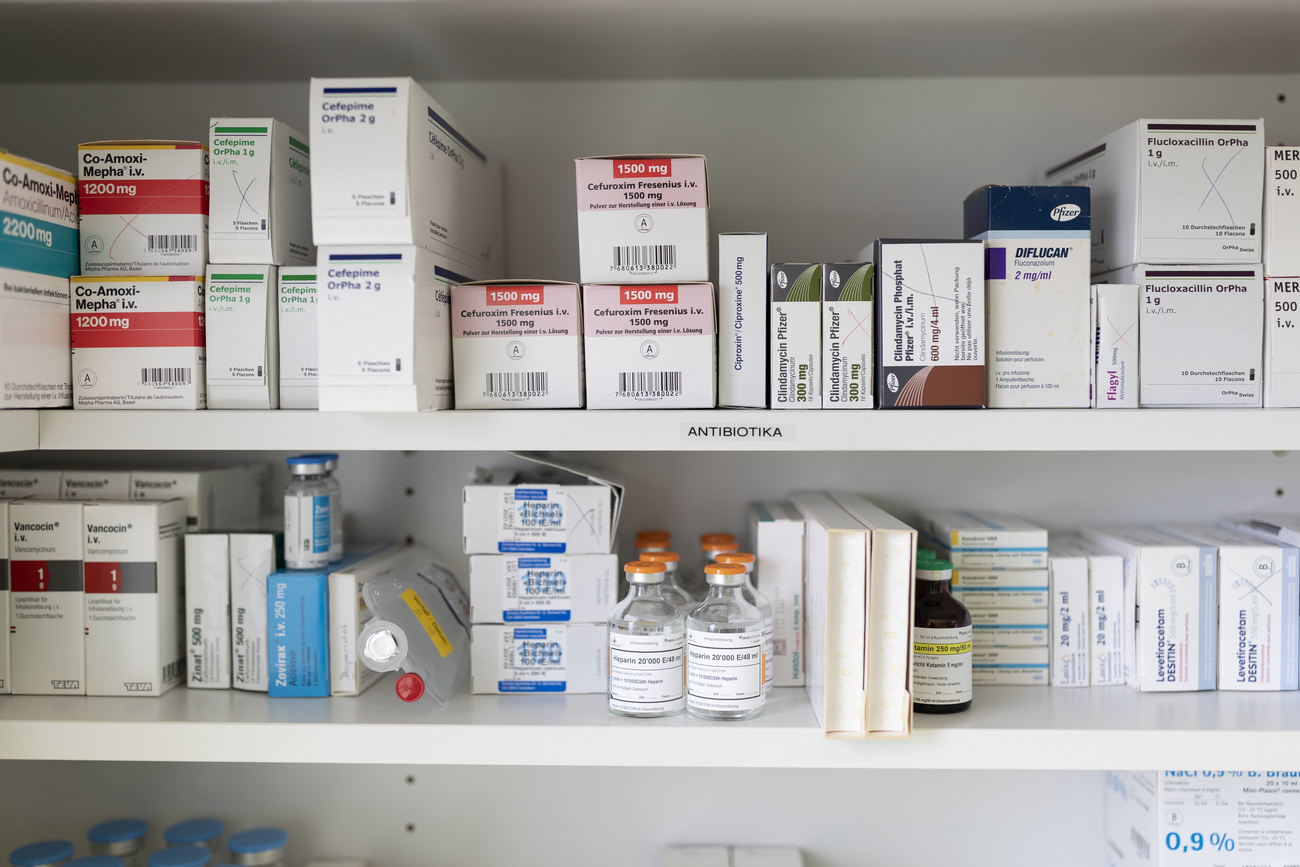Swiss government wants to tackle antibiotic resistance

Antibiotics should remain effective and resistance should be avoided. The Swiss government has therefore developed a strategy together with the cantons and other stakeholders.
The four federal offices involved presented the National Strategy on Antibiotic Resistance (StAR) in Bern on Monday. This was adopted by the government in 2016. The aim is to maintain the effectiveness of antibiotics, as the emergence of resistant bacteria is one of the most serious health problems worldwide.
With StAR, significant measures have been implemented to reduce the use of antibiotics and curb the spread of resistant bacteria. In human medicine, the consumption of antibiotics that are particularly critical for the development of resistance fell by 37% between 2012 and 2022. In veterinary medicine, antibiotic prescriptions have fallen by almost half since 2012. Critical antibiotics have been reduced by around two-thirds, according to the press release.
+ Swiss fight drug-resistant bacteria on many fronts
As humans, animals, agriculture and the environment are equally affected by antibiotic resistance, measures are being developed and implemented in all of these areas, the four federal offices wrote in the press release.
Taking action against infections
Infection prevention is a means of curbing the use of antibiotics and infection with resistant pathogens, the report continued. Targeted monitoring, prevention and control could prevent 35-55% of infections in hospitals and other healthcare facilities, depending on the type of infection.
The minimum requirements that hospitals must fulfil in order to prevent and combat these infections were defined nationwide in 2021, the statement continued. For example, all new healthcare professionals with patient contact must complete training on measures to contain the transmission of antibiotic-resistant bacteria between patients. This includes hand hygiene and patient isolation.
It is also important that hospitals screen patients who have been transferred from other healthcare facilities for the presence of multi-resistant bacteria. This would help to contain the introduction of pathogens. Infection prevention and control is also of great importance in veterinary medicine. Training on this topic would have a significant impact.
+ Only use antibiotics if necessary, officials warn
In Switzerland, various stakeholders are organising panel discussions, training courses, farm visits and information stands during the World AMR Awareness Week of the World Health Organization (WHO) and the World Organisation for Animal Health (WOAH) from November 18-24. In addition, nationwide communication activities will be organised via online testimonials and videos and a website.
The Federal Office of Public Health, the Federal Food Safety and Veterinary Office, the Federal Office for Agriculture and the Federal Office for the Environment are involved in the strategy.
This news story has been written and carefully fact-checked by an external editorial team. At SWI swissinfo.ch we select the most relevant news for an international audience and use automatic translation tools such as DeepL to translate it into English. Providing you with automatically translated news gives us the time to write more in-depth articles. You can find them here.
If you want to know more about how we work, have a look here, and if you have feedback on this news story please write to english@swissinfo.ch.

In compliance with the JTI standards
More: SWI swissinfo.ch certified by the Journalism Trust Initiative


















You can find an overview of ongoing debates with our journalists here . Please join us!
If you want to start a conversation about a topic raised in this article or want to report factual errors, email us at english@swissinfo.ch.